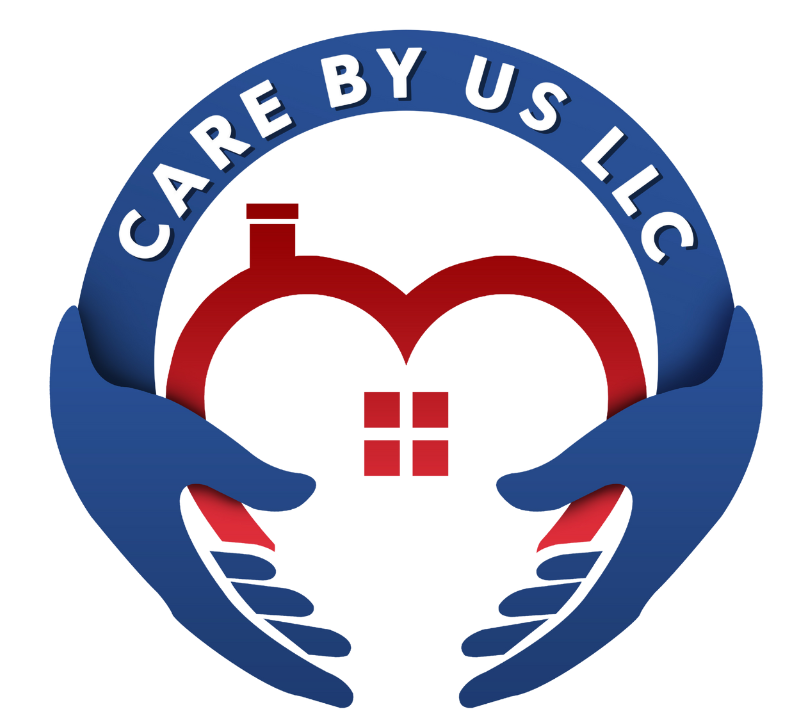Care By Us Multiple Sclerosis (MS) Support
Multiple Sclerosis (MS) is a chronic autoimmune disease that affects the central nervous system, including the brain and spinal cord. In MS, the immune system mistakenly attacks the protective covering of nerve fibers (called myelin), leading to inflammation, damage, and disruption of nerve signals. This can result in a wide range of symptoms and complications.
DID YOU KNOW (US and Florida Statistics)
US Insights:
- It is estimated that around 400,000 people in the United States are currently living with MS, with approximately 8,000 new cases being diagnosed each year. The prevalence of MS in the United States is slightly higher than the global average, and the highest prevalence can be found in Florida, which has the highest rate of MS in the country.
🌴 Florida's Reality:
- In Florida, the estimated prevalence of MS is about 200 cases per 100,000 people, which is significantly higher than the national average of roughly 115 cases per 100,000 people. This higher prevalence can be attributed to a variety of factors, including environmental, genetic, and socio-demographic factors.
Symptoms of Multiple Sclerosis (MS): The symptoms of MS can vary widely from person to person and may change over time. Common symptoms include:
- Fatigue: A pervasive and often debilitating sense of tiredness.
- Visual Disturbances: Blurred or double vision, eye pain, and loss of vision are common.
- Numbness and Tingling: Sensations of numbness, tingling, or pins and needles in various parts of the body.
- Muscle Weakness: Muscle weakness or difficulty with coordination and balance.
- Mobility Issues: Difficulty walking, loss of balance, and coordination problems.
- Pain and Spasticity: MS can cause pain, muscle stiffness, and spasms.
- Cognitive Changes: Problems with memory, concentration, and thinking.
- Bladder and Bowel Problems: Incontinence or difficulty with urination and bowel movements.
- Emotional and Mood Changes: Depression, anxiety, and mood swings can occur.
- Speech and Swallowing Difficulties: Some individuals may experience speech and swallowing difficulties.
Diagnosis of Multiple Sclerosis (MS): Diagnosing MS typically involves a combination of clinical evaluation, medical history review, and diagnostic tests, which may include:
- Neurological Examination: A neurologist assesses the patient's symptoms, medical history, and physical functioning.
- Magnetic Resonance Imaging (MRI): MRI scans of the brain and spinal cord can reveal characteristic lesions or plaques associated with MS.
- Cerebrospinal Fluid Analysis: A lumbar puncture (spinal tap) can detect abnormal levels of certain proteins in the cerebrospinal fluid, which may indicate MS.
- Evoked Potentials: These tests measure the speed of nerve signal transmission in response to stimuli.
- Blood Tests: Blood tests may be performed to rule out other conditions with similar symptoms.
Medications for Treating Multiple Sclerosis (MS): While there is no cure for MS, several medications are available to manage symptoms, slow disease progression, and modify the course of the disease. These medications fall into different categories:
- Disease-Modifying Therapies (DMTs): These drugs, such as interferons, glatiramer acetate, and newer oral and injectable medications, aim to reduce the frequency and severity of relapses and slow down the progression of the disease.
- Symptomatic Treatments: Medications may be prescribed to manage specific symptoms, such as muscle spasms, pain, fatigue, and bladder dysfunction.
- Corticosteroids: Short courses of high-dose corticosteroids may be used to manage acute exacerbations or relapses.
- Physical Therapy and Rehabilitation: Physical and occupational therapy can help improve mobility, balance, and quality of life.
Prevention of Multiple Sclerosis (MS): Currently, there is no known way to prevent the onset of MS. The exact cause of the disease is not fully understood, but it is believed to involve a combination of genetic and environmental factors. Some ongoing research is focused on understanding potential risk factors and triggers for MS, but no definitive preventive measures are available at this time.
Care By Us Multiple Sclerosis (MS) Care and Recovery Services:Top of Form
"Care By Us" is a home care agency or service provider that offers specialized care and recovery services for individuals living with Multiple Sclerosis (MS). Multiple Sclerosis is a chronic autoimmune disease that affects the central nervous system, leading to a variety of physical and cognitive symptoms. Care By Us appears to focus on providing support tailored to the unique needs and challenges faced by individuals with MS. Here are some potential services and support they may offer:
- Personalized Care Plans: Care By Us likely develops personalized care plans for each individual with MS, taking into account their specific symptoms, mobility levels, and other health factors.
- Assistance with Daily Living: Caregivers from Care By Us may help individuals with MS with activities of daily living (ADLs) such as bathing, dressing, grooming, and meal preparation.
- Mobility Assistance: Given that MS can affect mobility, Care By Us caregivers may assist with mobility aids, transfers, and exercises to maintain or improve strength and mobility.
- Medication Management: Individuals with MS often require medication management to control symptoms and disease progression. Care By Us caregivers may help with medication reminders and administration.
- Symptom Management: Care By Us may provide support in managing MS symptoms such as fatigue, pain, muscle spasms, and bladder or bowel issues.
- Emotional Support: Living with a chronic illness like MS can be emotionally challenging. Care By Us caregivers may offer companionship and emotional support to help individuals cope with the emotional impact of the disease.
- Physical Therapy: Physical therapists affiliated with Care By Us may provide exercises and therapies designed to improve strength, balance, and coordination for individuals with MS.
- Occupational Therapy: Occupational therapists may work with individuals to develop strategies for managing daily activities more independently despite the limitations posed by MS.
- Speech Therapy: If MS affects speech or swallowing abilities, Care By Us may provide speech therapy to help individuals communicate and eat more comfortably.
- Respite Care: Care By Us may offer respite care services, allowing family caregivers to take breaks while ensuring that their loved ones with MS continue to receive proper care.
- Home Safety Assessments: To prevent falls and accidents, Care By Us may conduct home safety assessments and make necessary modifications to the environment.
- Transportation Services: For medical appointments and other outings, caregivers from Care By Us may provide transportation services, particularly if mobility is an issue for the individual with MS.
- Educational Support: Care By Us may offer educational resources and information to both individuals with MS and their families to help them better understand the condition and how to manage it.
- Coordination with Healthcare Professionals: The agency likely collaborates with healthcare providers, neurologists, and other specialists to ensure that the care plan aligns with the individual's medical treatment.
It's important to note that the specific services offered by Care By Us may vary based on location, staffing, and the individual needs of the clients. Families and individuals seeking MS care and recovery services should contact the agency directly to discuss their specific requirements and to learn more about the services available. Additionally, individuals with MS should work with their healthcare team to develop a comprehensive care plan that may include services provided by agencies like Care By Us.


